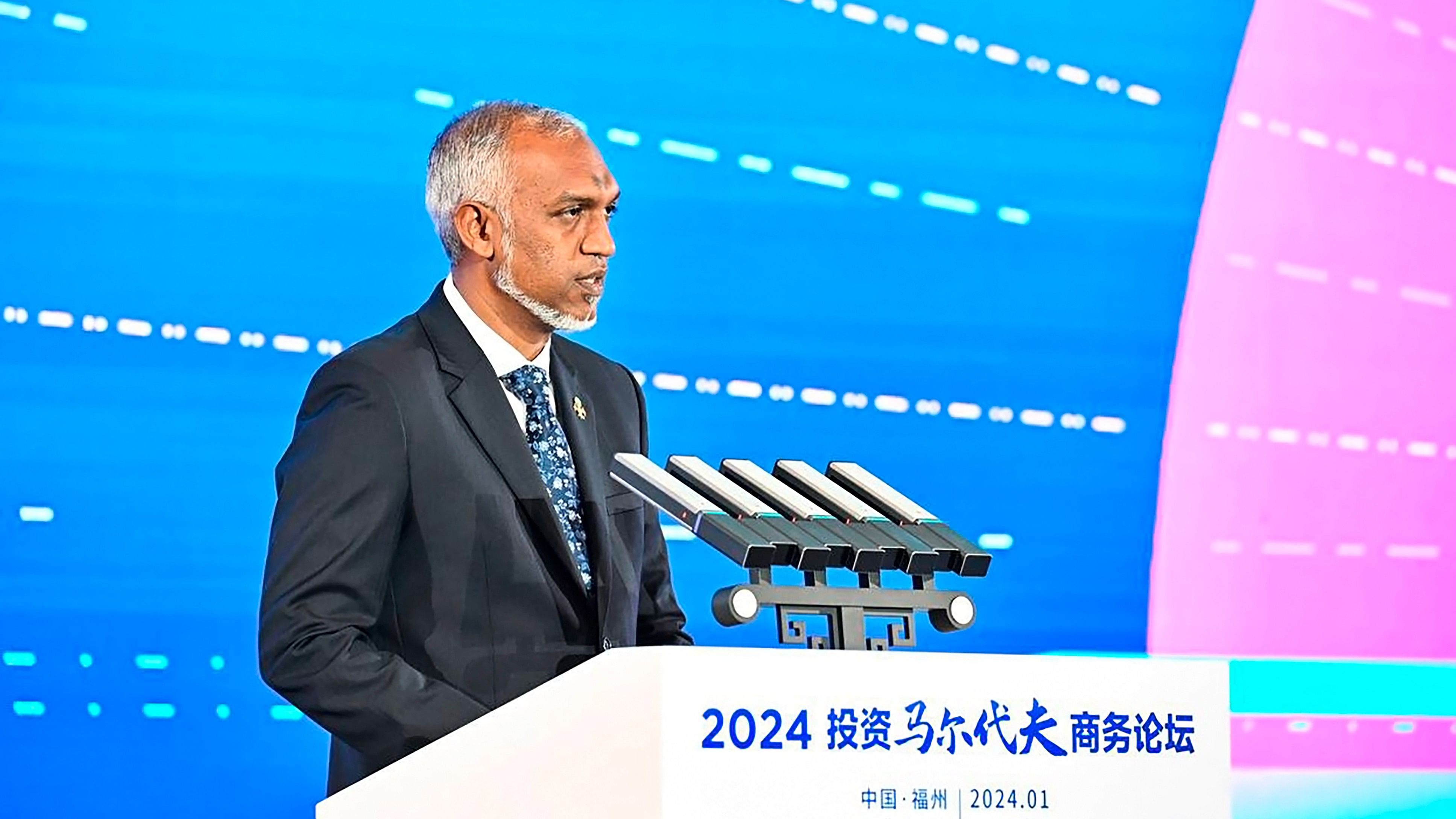
Maldives President Mohamed Muizzu.
Credit: PTI Photo
The Maldives President Mohamed Muizzu appears to be in a great hurry to tie up the details of his foreign policy. He is going about it as if the map of the world is about to change tomorrow. But he must realise that neither India nor China are going anywhere. India will remain Maldives's biggest and go-to neighbour in any crisis.
As well, the Chinese presence in the Indian Ocean Region is now something of a reality, one which all countries are dealing with in their own ways. As such, the Maldives’ pact with China “to obtain different forms of training required by the Maldives' military, and to be granted various non-lethal military equipment free of charge”, as reportedly explained by Muizzu, should be of concern.
Muizzu was also quoted as saying it was being provided gratis, and would help Maldives “stand on our own two feet so that we can have autonomy and independence”.
Replacing Indian military personnel and equipment with Chinese ones is certainly a choice, and represents Muizzu's exercise of his autonomy.
But if the reason for ejecting Indian personnel was to retrieve lost sovereignty, inviting the People's Liberation Army to train Maldivian defence forces (which include the police) in crowd control is not the way forward. China is certainly top-class in this department. But the former mayor of Male seems not to have grasped that there is no such thing as a free lunch, especially in a world full of treacherous geopolitical fault-lines. What might the Chinese want in return, or want to impose next?
The IMF recently warned that Maldives is deep in debt to China. It owes Beijing $1.37 bn. In 2015, the Yameen government changed land laws to enable Chinese entities to buy islands in the Maldivian atoll. That law was junked by the Ibrahim Solih government that followed Yameen’s, but it is pertinent to recall the words of former President Mohammed Nasheed, who warned some years ago that a Chinese “land grab” to settle the debt was a real possibility.
As for India, Delhi should make it clear to the Maldivian President that it has a real military situation with China, one that has required a permanent deployment in Eastern Ladakh along the Line of Actual Control, with troops on high alert and in a state of operational readiness. As a good neighbour, Maldives must take into account Indian concerns, and desist from taking any measure that could fuel military tensions on its doorstep. India has made the right decision to develop a naval base close by in Lakshadweep. A separate question, one that should be of concern to Maldives’ 500,000 people, is why their President is so keen on free Chinese teargas shells and pepper spray.